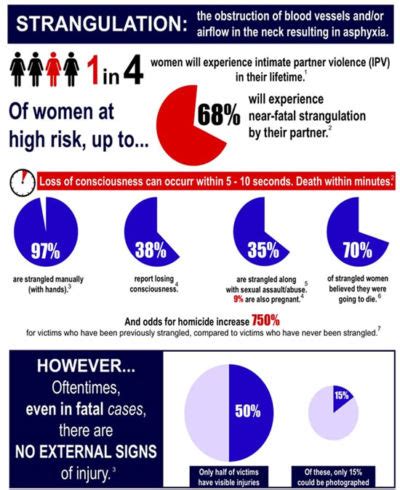Strangulation Allegations: What to Expect
Strangulation allegations are incredibly serious, carrying potentially devastating legal and personal consequences. Understanding what to expect if you're facing such allegations, whether as the accused or the accuser, is crucial. This article provides a comprehensive overview of the process, legal ramifications, and emotional considerations involved. It's important to remember this information is for general knowledge and does not constitute legal advice. Always consult with a qualified legal professional for advice specific to your situation.
What Constitutes Strangulation?
Strangulation, unlike choking, involves the compression of the neck, restricting blood flow to the brain and potentially causing serious injury or death. This can be accomplished through hands, a ligature (such as a rope or cord), or other means. The key difference lies in the mechanism of injury: choking involves blocking the airway, while strangulation restricts blood flow. Even if there are no visible marks, internal injuries can occur, making diagnosis challenging but critical in legal proceedings.
What Happens After a Strangulation Allegation is Made?
The process varies depending on jurisdiction and the specific circumstances. However, some common steps include:
- Law Enforcement Investigation: Police will investigate the allegation, gathering evidence such as witness statements, medical records, and photographs. They may also interview the alleged victim and the accused.
- Arrest and Charges: If the investigation suggests probable cause, the accused may be arrested and charged with a crime, ranging from misdemeanor assault to felony strangulation or attempted murder. The severity of the charge often depends on the evidence presented, the extent of injury, and the victim’s testimony.
- Legal Representation: It is crucial to secure legal counsel immediately. An experienced attorney can advise on your rights, represent you in court, and help navigate the complex legal system.
- Pre-Trial Proceedings: This phase involves discovery (exchange of evidence), plea bargaining (negotiation for a reduced sentence), and various court hearings.
- Trial: If a plea agreement isn't reached, the case proceeds to trial, where a judge or jury will determine guilt or innocence based on the presented evidence.
- Sentencing: If found guilty, the accused will face sentencing, which can range from probation and community service to imprisonment, depending on the severity of the offense and the jurisdiction's laws.
What Evidence is Typically Used in Strangulation Cases?
Evidence in strangulation cases can be both physical and circumstantial. Key pieces of evidence may include:
- Victim Testimony: The victim’s account of the incident is often a crucial piece of evidence.
- Medical Records: Medical examinations can reveal injuries, even if they are not outwardly visible. Internal injuries, such as bleeding in the eyes or brain, are often indicative of strangulation.
- Photos and Videos: Photos and videos documenting injuries or the scene of the crime can be powerful evidence.
- Witness Testimony: Statements from witnesses who observed the incident are also important.
- Forensic Evidence: DNA evidence or other forensic findings may be present.
What are the Legal Ramifications of a Strangulation Conviction?
A strangulation conviction carries severe penalties, including:
- Imprisonment: Sentences can range from several years to life imprisonment, depending on the severity of the charge and the jurisdiction.
- Fines: Significant financial penalties can be imposed.
- Probation: The convicted individual may be placed on probation, subject to various conditions.
- Protective Orders: A restraining order may be issued, preventing the accused from contacting the victim.
- Criminal Record: A conviction will result in a criminal record, impacting future employment, housing, and other aspects of life.
What if I am Accused of Strangulation?
If you are accused of strangulation, it's crucial to remain calm and seek immediate legal counsel. Do not speak to law enforcement or anyone else without an attorney present. Your attorney can advise you on your rights and help you build a strong defense.
What if I am the Victim of Strangulation?
If you are a victim of strangulation, seek immediate medical attention. Even if you feel fine, internal injuries may be present. Report the incident to law enforcement and consider seeking support from a domestic violence advocacy organization.
How Long Does a Strangulation Case Take?
The duration of a strangulation case varies significantly, depending on the complexity of the case, the court's backlog, and other factors. It can range from several months to several years.
What are the Long-Term Effects of Strangulation?
The long-term effects of strangulation can be severe and include physical injuries, psychological trauma, and post-traumatic stress disorder (PTSD).
This information is for general knowledge only and should not be considered legal advice. Always consult with a qualified legal professional for guidance on your specific situation. Seeking help from support organizations can also provide crucial emotional and practical assistance.

